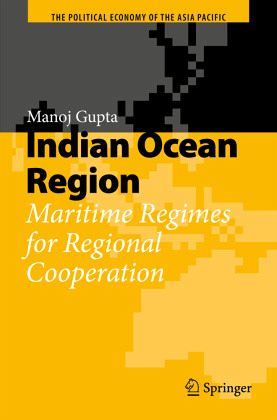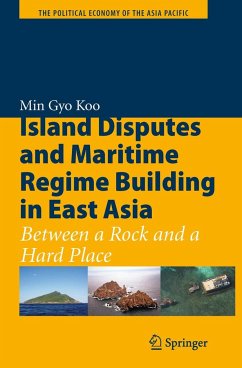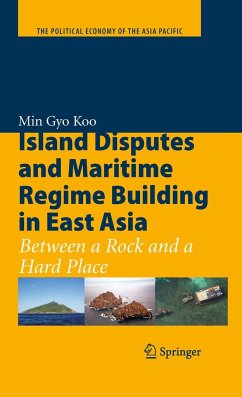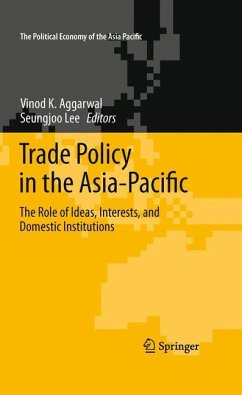
Indian Ocean Region
Maritime Regimes for Regional Cooperation
Versandkostenfrei!
Versandfertig in 6-10 Tagen
166,99 €
inkl. MwSt.

PAYBACK Punkte
83 °P sammeln!
The Indian Ocean region is arguably one of the world's least understood, yet its importance in geopolitics and international relations is greater than ever before. This book explores the concepts of regime theory, regional orders and ocean governance to critically assess the effectiveness of maritime regimes, something that not been attempted before for the Indian Ocean Region. This study employs the theoretical framework of international regimes in the context of ocean governance by developing a new model, which is used to test the regimes' effectiveness.
This book addresses the analytical gap in our understanding about the strategic importance of the Indian Ocean as a region in contemporary world geopolitics and international relations. Case studies display the groundwork for regional cooperation in the maritime realm laid by Indian Ocean countries, and the effectiveness of current political leadership is addressed. There is considerable value in looking at the Indian Ocean as a region for future analysis of maritime regimes, and this book proposes that international maritime regimes can expand regional cooperation in the Indian Ocean to create a new geopolitical region. The interdisciplinary approach presented draws on historical analysis, international maritime law, political science, international relations and the literature on regime theory and will be of interest to academics in those fields as well as policy-makers concerned with maritime issues.
This book addresses the analytical gap in our understanding about the strategic importance of the Indian Ocean as a region in contemporary world geopolitics and international relations. Case studies display the groundwork for regional cooperation in the maritime realm laid by Indian Ocean countries, and the effectiveness of current political leadership is addressed. There is considerable value in looking at the Indian Ocean as a region for future analysis of maritime regimes, and this book proposes that international maritime regimes can expand regional cooperation in the Indian Ocean to create a new geopolitical region. The interdisciplinary approach presented draws on historical analysis, international maritime law, political science, international relations and the literature on regime theory and will be of interest to academics in those fields as well as policy-makers concerned with maritime issues.
It is a privilege to introduce the reader to this book, as I believe that it will make a signi?cant contribution to, given the dif?culties in the knowledge of the Indian Ocean, developing cooperation in the Indian Ocean region. There have been numerous failed efforts at regional cooperation in different fora in the Indian Ocean. As a result of the land-based orientation of the people in the region, the importance for countries to develop the power to govern the sea has largely been ignored. The maritime approach taken by Manoj Gupta to the Indian Ocean as a region in international relations offers a timely and critical assessment of the potential for regional cooperation and ocean governance. The political leadership in the region can no longer ignore the need for coop- ation in maritime affairs in the Indian Ocean. This book enriches the literature on Indian Ocean issues as it argues convincingly that the security of nations, economic well-being of the people and health of the Indian Ocean cannot be divested from one another. All are fundamentally dependant on the ability of the countries in the region to individually and collectively exert the power to govern the sea.












